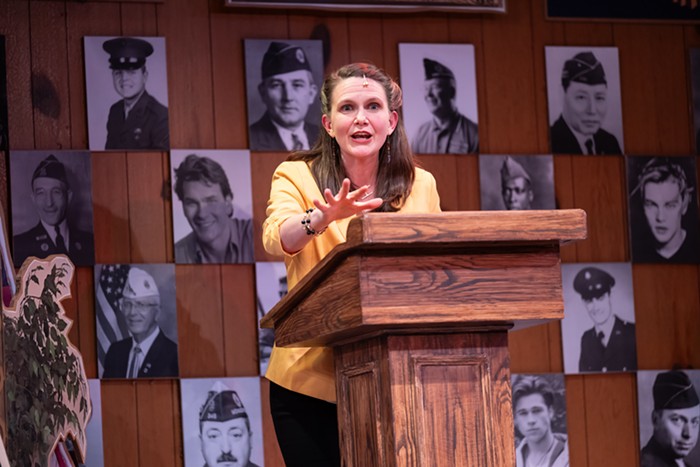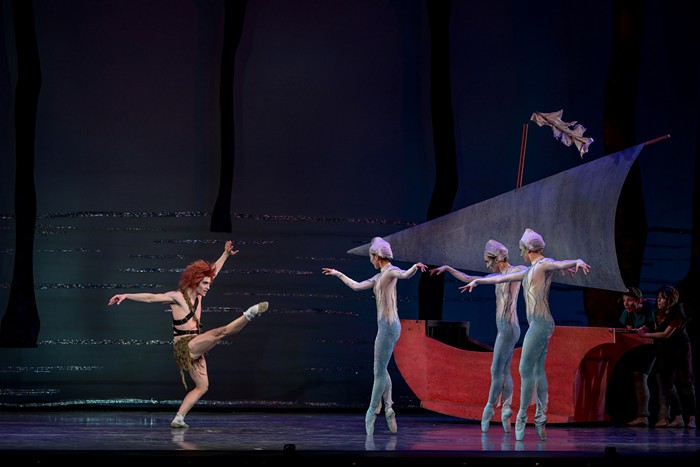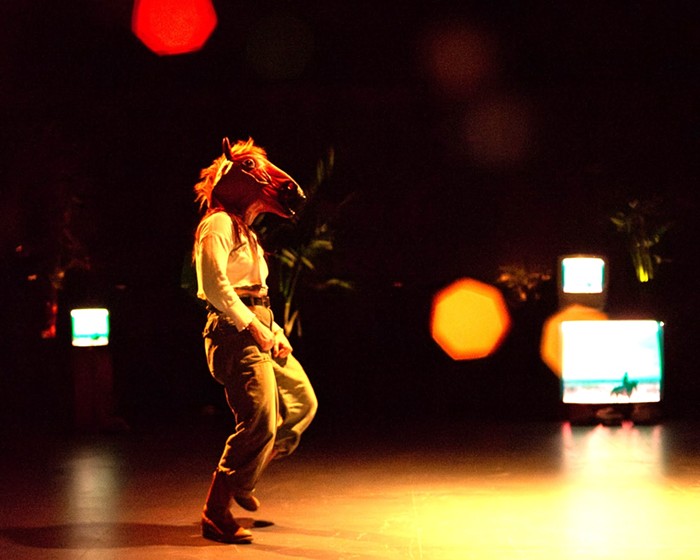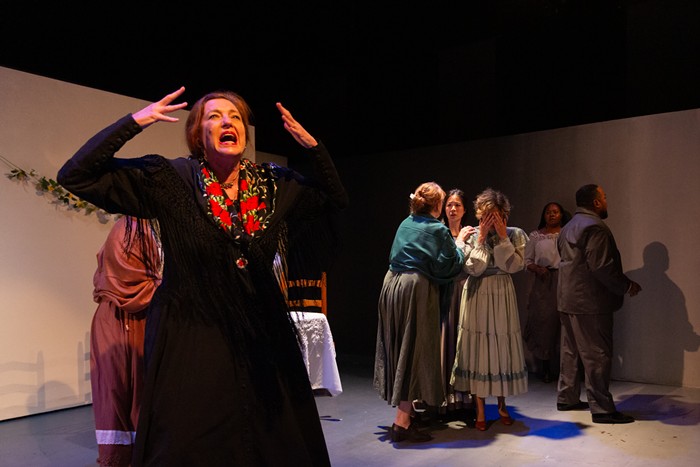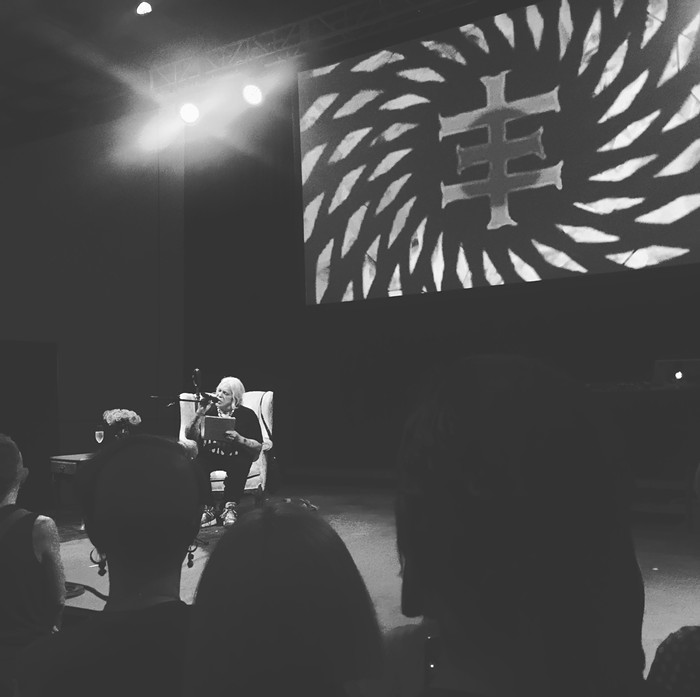
Without question, Genesis Breyer P-Orridge was the perfect choice to kick off TBA, the 15th edition of the arts festival put on each year by PICA. They have spent nearly five decades challenging perceptions of what art is through their work with COUM Transmissions and the bands they helped found: the proto-industrial outfit Throbbing Gristle and the ever-morphing Psychic TV. In recent years, P-Orridge has been preaching the gospel of pandrogyny, or the removal of all gender classifications through, as they put it last night from the stage of The Works, “redefining and rebuilding yourself from the found up.” In a time when the transgender community has finally gained some mainstream acceptance, it was a very welcome message from one of the community's loudest advocates.
Sadly, opening night of TBA:17 at the Works as a venue was not well-suited to getting this message across. While plenty of folks in the room crowded around the stage, where P-Orridge sat in a comfy white chair, reading from sheafs of paper and sipping from a glass of champagne, the majority of the attendees stuck close to the bar or to the back of the room, talking loudly and likely waiting for the dance party that was going to close out the night. Couple that with the sticky heat that permeated the space, and what was supposed to be an engaging performance became a small endurance test.
P-Orridge did manage to cut through the murk and the chatter with some authority. Much of their performance had the tone of a motivational speech or a deliciously filthy sermon. The chief message was self-actualization, a way to break down the programming we’ve been subjected to as children and young adults, and accepting that life as we know it is an illusion. P-Orridge drove these ideas home in the mode of Allen Ginsberg, repeating key phrases over and over with slight variations and, at times, breaking into bits of song. If these pieces occasionally veered into bumper sticker-like statements like “DNA spelled backwards is ‘and’,” they made up for it through simple cheer-inducing calls to “destroy gender” and “wage war on all binary systems.”
The most affecting element of the performance was in the absence of an important figure in P-Orridge’s life: their late partner Lady Jaye, who passed away in 2007. While Jaye’s face was melded into the computer collage art that was projected on a screen above the stage, their essence remained at the core of much of the evening. Early in the performance, the formless electronic soundtrack far was overtaken by a lovely guitar figure. P-Orridge followed the melody, singing of Jaye as an “arbiter of elegance” with references to their interest in S&M and their career caring for terminally ill children. Later, hunched over in the chair and singing quietly of soul-searching and “trying to tell you what my heart feels,” they dabbed away tears. The wound of Lady Jaye’s death is clearly still fresh a decade later, and the pain was hard for all of us—even outside observers—to bear.

